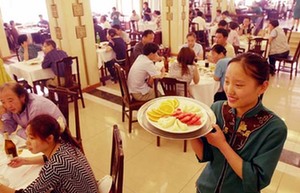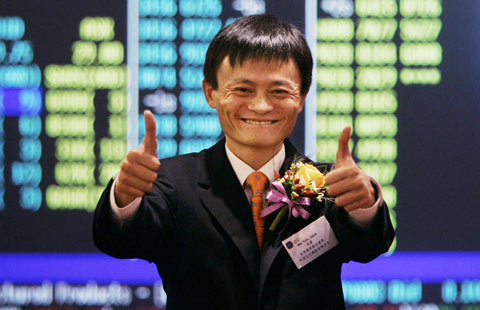Experts: Time for faster shift to services
By Zhu Zhe in Geneva and Li Jiabao in Beijing (China Daily) Updated: 2014-06-11 07:01He suggested that China could draw on the experience it gained during the fast growth of its manufacturing sector. "Some practices might be copied to boost the service trade," he said.
Trade in services generally refers to the sale and delivery of an intangible product, such as information technology, finance, environmental protection and logistics.
WTO data show that despite a drop in global merchandise trade last year, trade in services increased 6.1 percent to $9 trillion. China's service trade totaled $539 billion, the third-largest in the world, while its merchandise trade exceeded $4 trillion.
Compared with developed countries, where services account for more than 20 percent of total foreign trade, the proportion in China is about 10 percent. That shows there's much room for improvement, Yao Jian, a spokesman for the Ministry of Commerce, said earlier this year.
Yi said China is quickly losing its manufacturing competitiveness because of rising labor costs, energy prices and a stronger yuan. He said that about 300 companies have already moved their manufacturing back to the United States, mostly from China, citing a study by The Boston Consulting Group Inc.
"China should be fully aware that the good old days have passed and shifting to the service trade is the right direction," said Yi, who is also a former vice-minister of commerce and ambassador to the WTO.
He stressed the importance of further opening-up in China, given recent domestic debate over whether the country should de-emphasize foreign trade to concentrate on boosting internal demand.
"I think both are important and don't contradict each other. We must remember that opening-up was the foundation for China's rapid growth in the past three decades," he said.
"We must not waver on that."
|
 |
 |
| ZGC, ASEAN promote service trade | China's service sector opening to foreign investment |
- Experts: Rate cuts won't aid realty sector
- Sharp to provide highest resolution LCD to Chinese firms
- China launches fund to boost underdeveloped regions
- China drafting plan for Silk Road cooperation
- China to ditch dirty vehicles
- Experts: Time for faster shift to services
- PBOC clarifies sectors targeted for support
- Nation standing by multilateral system for trade

















